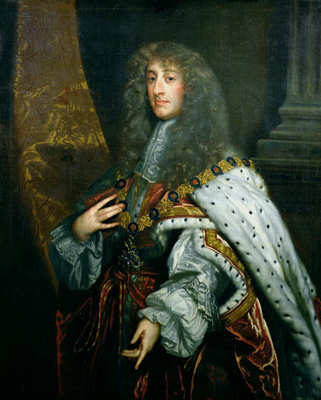This week has been an eventful one throughout history, with King James II landing in Ireland, and perhaps the most famous literary wedding of all time.
Each week BRITAIN magazine will bring you a round-up of the significant historical dates in the week ahead; this week we look back at Shakespearean love affairs and the death of a prominent queen.

11 March
In 1988 the pound note was removed from British currency, replaced by the pound coin, although it still continued to be issued in the Isle of Man, Jersey and Guernsey, and by the Royal Bank of Scotland.
According to Shakespeare, this date in 1302 was the day of the doomed wedding of Romeo and Juliet.
12 March
On 1689 King James II landed in Kinsale in with 6000 French troops and marched first to Dublin with his largely Jacobite army and then north to where the Siege of Derry was taking place.
On this day in 1794 the Theatre Royal in Drury Lane, London, reopened after major refurbishment.
14 March
Philosopher and revolutionary Karl Marx died in London on this date in 1883 and was buried in Highgate Cemetery.
15 March
King Charles II enacts the Declaration of Indulgence in 1672, which many believed was the first step to establishing freedom of religion in Britain.
16 March
On this day in 1485 Anne Neville, wife of Richard III died. She played a pivotal role in the War of the Roses after her father, the 16th Earl of Warwick betrothed her to Edward, Prince of Wales, the son of Henry VI, in a bid to seal the alliance of both the House of Lancaster and the House of York. She married Richard after Edward’s death.
17 March
According to the St Patrick story, on this day in 461 English-born St Patrick died in Downpatrick.
Related articlesThe story of St Patrick |
Click here to subscribe! |





 © 2024
© 2024